This article is about right-wing libertarianism, for its left-wing form, see libertarian socialism
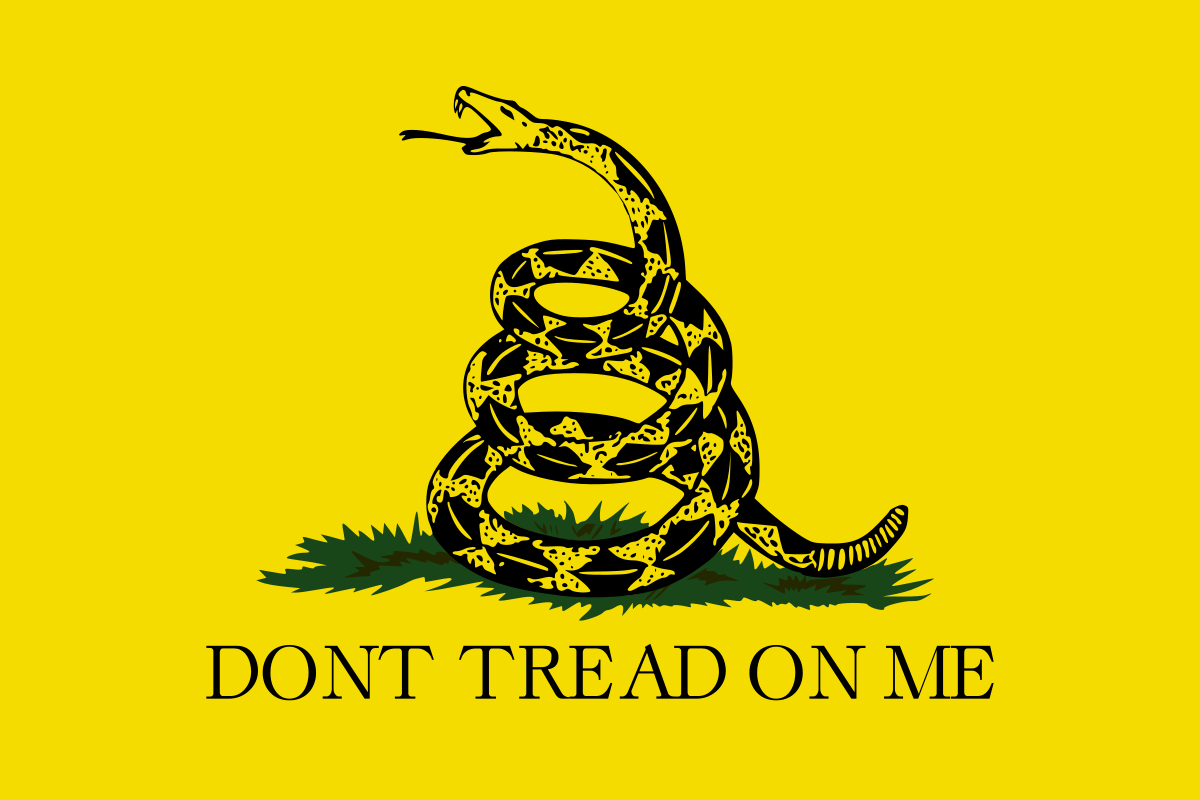
Libertarianism, or in this context, right-wing libertarianism, refers to the ultra-indivdualist and highly idealistic ideologies that view the government as the primary force that reduces their "liberty", and view capitalism as a largely voluntary and effective system. Similar to liberals, libertarians put a large amount of stock in the ideas of "natural law", but unlike liberals, libertarians take "natural law", as well as individualism, to a much more extreme conclusion, to the point where many of them are willing to deprive the poor and needful of basic social programs all in the goal of creating an idealistic "free-market" utopia.[1][2][3]
Right-wing libertarians can be broadly split into three groups: mainstream libertarians (those who make up the majority of the movement, and whom are the least extreme), "minarchists" (those who want a "minimal state"), and anarcho-capitalists (who are the most idealistic and extreme).[4] Furthermore, while libertarians are some of the most fanatical apologists of capitalism, they are often times rather progressive on certain social issues, such as drug prohibition, firearm ownership, and mass incarceration of the poor.[5]
In spite of libertarianism being, in theory, an anti-state ideology, libertarians often have a trend of embracing white-supremacist ideas, and otherwise fascist ideology. This trend is known as the Alt-Right Pipeline.[6] Additionally, people such as Gavin McInnes, founder of the neo-fascist paramilitary group known as the Proud Boys, and Ben Shapiro, a devout Trumpist and white-supremacist commentator, have identified themselves as libertarians.
History
Early development
Libertarianism largely developed from the same body of philosophical framework as liberalism, which itself began to develop with the birth and eventual triumph of capitalism over feudalism. Libertarianism was particularly influenced by the works of John Locke and Thomas Paine, largely from their ideas about the concept of property. The libertarian idea of "free trade" was also influenced by the conflict of mercantilism that was happening during the early formation of capitalism.[7] One of the first thinkers to have transcended liberalism in this regard was William Godwin, who believed that the state was inherently bound to be detrimental to the happiness and fulfillment of its subjects, and thought that a direct-democracy, one where people were able to better achieve fulfillment by means of individual contracts and agreements, rather than laws, would be the logical conclusion of a society.
Later development
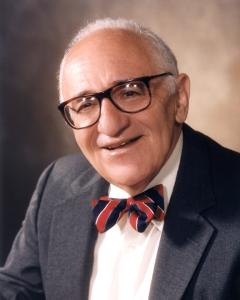
The modern understanding of "libertarianism", that is, in the sense of those who seek a largely unregulated form of capitalism with a weakened state, really only developed during the middle-to-late part of the 20th century. During the 1940's, with the works of Ayn Rand and Ludwig von Mises,[8] along with the formation of the Foundation for Economic Education think-tank, a foundation for modern libertarianism was created. By the 1960's and 1970's, the term libertarian had became associated with its modern meaning in American political parlance, largely with the aid of people such as Murray Rothbard, who had wrote many works that would contribute greatly to Austrian Economics.[9]
Modern times
Right-wing libertarianism has seen little popularity or success outside the United States of America, and even within the borders of the USA, libertarianism has played a relatively unimportant role in Statesian politics, in comparison to the Democrats and the Republicans.
Philosophy
The term libertarian is itself vague, and it has often been used to talk about anarchists and otherwise "anti-state socialists." Furthermore, "libertarianism" even in the sense of its purely right-wing form does not truly refer to a single ideology, as right-wing libertarians are split on various matters, such as the degree of the power of the state (with classical liberals merely wanting to reduce the state to a certain lesser level, to anarcho-capitalists seeking to fully abolish the state.), their social values, and so on.
Views on property
Right-wing libertarians fetishize the idea of private property. By a right-libertarian's logic, humans themselves are property, and the reason why people are "free" and not slaves is because they own that particularly property, or in this case, themselves. Therefore, by the right-wing libertarians' logic, all freedom comes from private property. Furthermore, right-wing libertarians think that private property is an inherent right that must be enforced. For example, by a right-libertarians logic, a factory-owner giving his workers abhorrent wages, having them work overly long-hours, and providing no acceptable working conditions would be perfectly fine, yet having those same workers attempting to strike or forcefully collectivize the factory-owner's factory would, by the right-wing libertarians view, be an act of theft, and would allow the factory-owner to decide whatever they want to punish the workers for breaking the NAP.[10]
Non Aggression Principle
Many right-wing libertarians, particularly anarcho-capitalists and minarchists, uphold the Non Aggression Principle (NAP). The NAP holds that somebody cannot use force or otherwise coercive methods against someone or their property, and that if the NAP is broken, then that person may defend themselves. The NAP would, if put in effect in real-life, only benefit the landed and wealthy. For example, under the NAP, having a government demand income tax from a multi-millionaire would count as an act of aggression, but having a wealthy land-lord evict a impoverished, hungry family on to the streets to starve and freeze would be acceptable under the NAP.[11]
Views of the state
Libertarians hold a largely negative view of the state. Right-libertarians view the state as no different than an economic monopoly. Furthermore, right-libertarians perceive government intervention in the economy (including most, if not all welfare programs) as something that degrades the "free market", and think that the poor could become more well-off if they were to create a less regulated form of capitalism, in theory, making it less cumbersome to "go start a business".[3]
Right-wing libertarians also view the state as what amounts to a gang of scheming men-in-ties; a group of "bad men" who want to sabotage the "free market". Libertarians care little for understanding the class-based nature of the state. Additionally, right-libertarians view any and all socialist states as merely just areas where the "government does everything," and other notions of capitalist propaganda.
Views on taxation
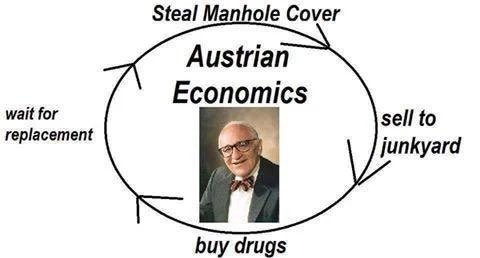
Right-wing libertarians, in all their petty-bourgeois childishness, view taxation as a form of coercion from the state, and therefore a violation of the NAP.[12] However, also according to right-libertarians, things such as rent and debt are mostly valid methods of economic exchange, unless it entails the government, in which case, it violates the NAP, of course.
Views on Economics
A large amount right-wing libertarians are adherents of the Austrian school of economics, which holds that present economic exchange and development is primarily based upon largely individualistic and voluntary human interaction, and is not ascertainable by means of scientific investigation or mathematical computation, and is against governmental interaction in economic functions.
Variants
Besides mainstream libertarianism, they are several other notable trends in the right-wing libertarian movement.
Paleolibertarianism
Paleolibertarianism refers to the post-cold war movement by libertarians to ally themselves with paleoconservatives. Paleolibertarians viewed the libertarians associated with the neoconservatives as becoming to statist and interventionist, and along with the changing social values of the 1990's, began to find common ground with the paleoconservative movement, largely because of their similarly regressive social values and anti-state rhetoric.[13] These libertarians have "paleo" in their name because of their similar views to the classical liberals of the early 20th century, and due to their alignment with paleoconservatives. Paleolibertarians sought to combine with paleoconservatives in spreading anti-government and otherwise populist and reactionary propaganda to incite the petit-bourgeoisie to overthrow the government, a tactic very similar to ones used by another far-right ideology.[14]
Geolibertarianism
Geolibertarianism combines libertarian ideology with the Georgist single-tax movement. Geolibertarians hold, unlike with normal libertarians who reject taxation altogether, that there should be taxation, but only based on land and natural resources. Because the government would only be receiving a single tax, it would likely be greatly reduced in size and scope, hence, the libertarian component.[15]
Green libertarianism
Green libertarianism, also known as eco-libertarianism, is a sub-ideology of libertarianism that seeks to combine libertarian economics with environmental protection and sustainablity.
Minarchism
A minarchy, or night-watchman state, is a government model in which the state is reduced in size and function to such an extent to where it can only provide basic law-enforcement services to its citizens. While some left-wing libertarians could be described as "minarchists", as a minarchy is simply a political model, and not an economic model, most self-proclaimed minarchists are right-wing libertarians. Minarchists hold that the government should only exist to enforce the NAP (that is, property rights). Because, according to Minarchists, the state should only be present for NAP enforcement, the government should be reduced to the point where it is only a security force.[16]
"Anarcho"-capitalism
See main article: Anarcho-capitalism
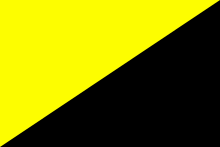
Anarcho-capitalists (Ancaps, as they are often called) are some of the most extreme libertarians, and supporters of capitalism. In spite of them calling themselves "Anarchists", they are very much not anarchists, but rather, extremist right-libertarians. Ancaps want a fully-stateless society, one where people would be "free" to make agreements with each other, and enforce the NAP. They are ultra-idealistic, not understanding that capitalism requires a state to exist, furthermore, the reason why they fail to count as anarchists is largely because, while real anarchists seek the removel of class-based society, and unjust hierarchies, ancaps merely seek to abolish the government, beyond that, ancaps are content with exploitive groups still existing.
If an anarcho-capitalist society were to ever come about, it would likely be much closer to feudalism rather than capitalism, with ancaps wishing for things such as private security guards, an economy of small-scale producers (that is what can be implied based upon their strong dislike towards "corporatism" and "cronyism"), and the primary means of economic agreement being that of contracts.[17]
Modern movements
While right-libertarianism holds little power in the Statesian government, similar to nearly all ideologies that do not comply with neoliberalism, it has nonetheless seen some major movements grow out of right-wing libertarian ideology.
Tea Party movement
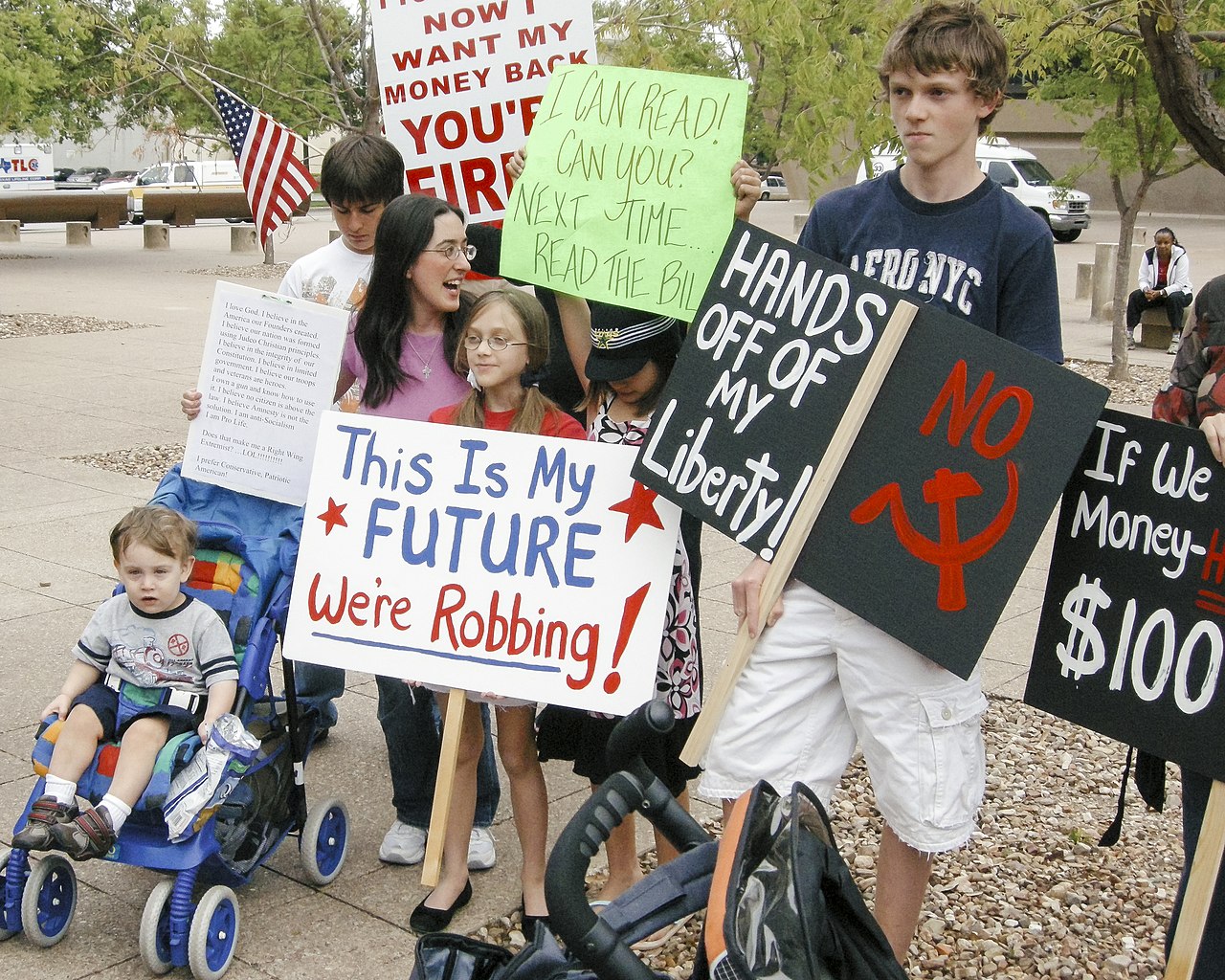
Starting in 2009 with a CNBC reporter calling for a "tea party" to be held, the tea party movement was a right-wing populist protest movement that largely ended by 2016.[18] The tea party movement (named after the particular type of social gathering, as well as the so-called "Boston tea party" of 1773.) was largely motivated by anti-government conspiracy theories and concerns about "big government", often spread by the far-right part of the corporate media. While the tea party movement was rather a mixture of various far-right movements, often loyal to the Statesian GOP,[19] right-wing libertarianism did nevertheless hold a notable place in the movement, largely because of their anti-government populist rhetoric.[20] In regards to its participants, the tea party was largely a reactionary petit-bourgeoisie movement, its supporters often devout christians and of middle age.[21][22][23]
The tea party movement itself was born as a reaction to the at-the-time president Barrack Obama's new social programs, particularly in regards to healthcare,[24] and the economic malaise which followed the 2008 recession.[25] The tea party movement called for a lowering of the Statesian debt and other financial shortcomings by means of government austerity measures, of which, the only people who would benefit would be the middle and upper class.[26] The large waves of tea party protests that began in 2009 began to fizzle out by 2010, and by 2016, the movement was largely a thing of the past.[18]
Boogaloo militia
The boogaloo militia, also known as the "boogaloo boys" or "boogaloo bois", are a loose grouping of anti-establishment armed extremist groups in the United States of America. The movement first appeared in the early 2010's from far-right internet groups, often fearing of an incoming "race war" or other conspiratorial plots by some government and/or race. The term boogaloo itself, in the context of it being used by far-right groups, has a hidden meaning - that is - a hypothetical second civil war in the USA, or sometimes a "race war".[27] The boogaloo movement would later gain popularity as a result of the Covid-19 pandemic and the resulting government lockdowns,[28] and later the George Floyd protests. Because of the militantly individualistic nature of the Statesian middle class, the boogaloo boys were able to gain many supporters, commonly motivated by pseudo-scientific lies about COVID-19 vaccines and pandemic lockdowns, and further incited by Donald Trump's anti-lockdown rhetoric.[29] The boogaloo boys do not have a common ideology, however, most of them are right-wing libertarians, often minarchists or anarcho-capitalists.[27][30] Furthermore, nearly all boogaloo boys are accelerationists; wishing to start a second civil war.[29]
During the George Floyd protests and general instability in the early years of the 2020's, many boogaloo bois were seen defending small businesses or even large corporate buildings.
Libertarian Party (USA)
See main article: Libertarian Party (USA)
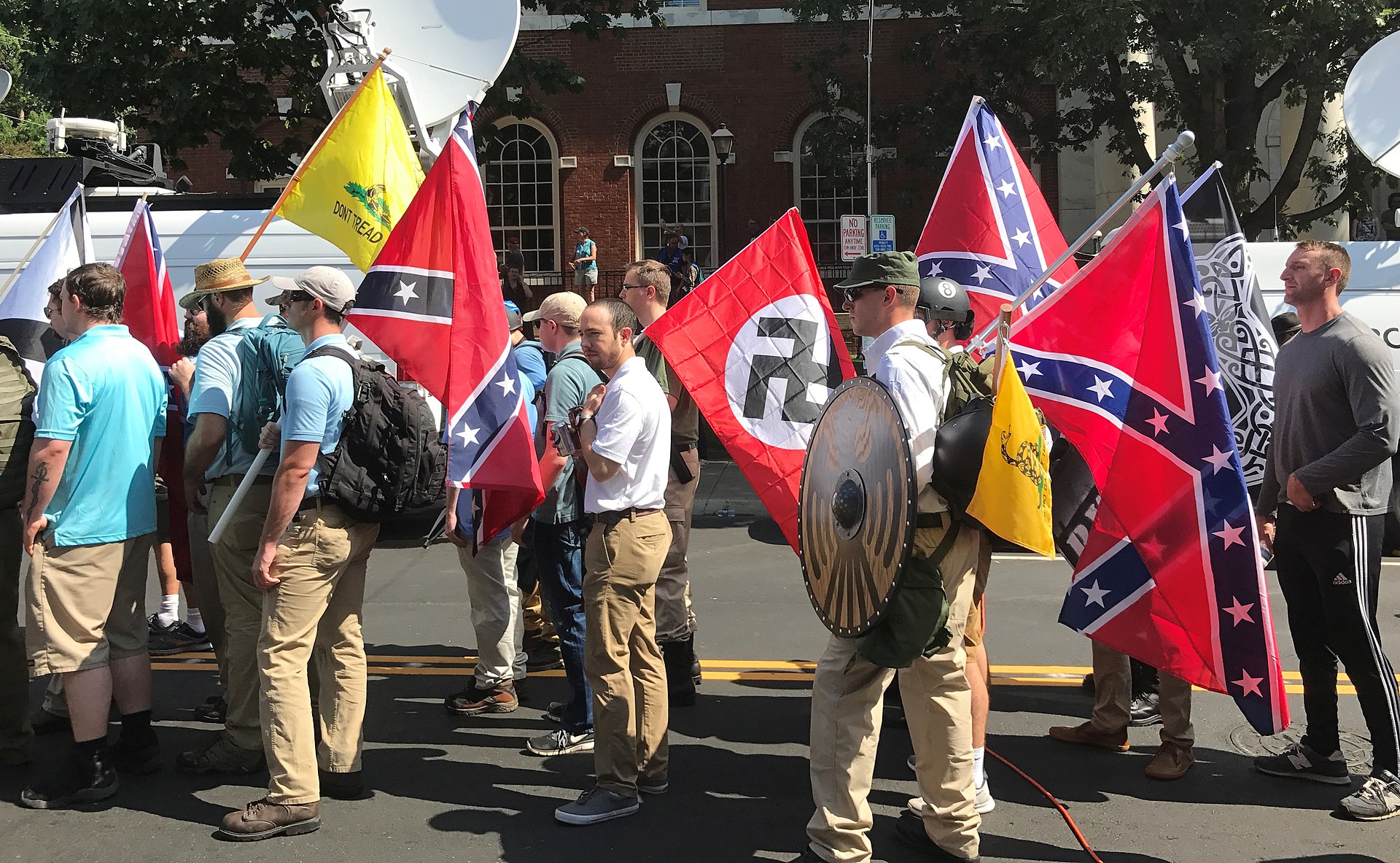
Forming in 1971 by David Nolan. The libertarian party of the United States of America was one of the first self-declared libertarian parties to exist. It has been the third largest political party in the USA, behind the Democrats and Republicans.
Conclusion
Right-wing libertarianism, similar to fascism, is a idealist, reactionary, and petite-bourgeois far-right trend. Right-libertarianism, being a reaction to late-stage capitalism and neoliberalism, seeks to recreate a form of capitalism that never existed in the first place. Right-libertarians, much like with other libertarians, are totally lacking in any sort of historical or class analysis, and in their folly, seek only to create a petite-bougeois utopia. In the very unlikely event that right-libertarians ever gain power, their nation would become little more than a ultra-plutocractic dystopia, where megacorporations are free to exploit workers endlessly, and the workers themselves would be put in a state of unthinkable poverty and exploitation. Fortunately, right-libertarians almost certainly never will gain power, for capitalism requires a state to exist, and capitalism needs social programs and government intervention to keep the workers from performing a revolution, therefore, right-libertarianism is in no way something which the ruling class favours.
See also
References
- ↑ David Boaz (2015-5-4). "Libertarianism" Encyclopædia Britannica.
- ↑ Murray N. Rothbard (2010-12-21). "The Left and Right within Libertarianism" Mises Institute. Retrieved 2022-6-11.
- ↑ 3.0 3.1 David Boaz (2019-4-19). "Key Concepts of Libertarianism" Cato Institute.
- ↑ Randy E. Barnett (1998). The Structure of Liberty, vol. 20. [PDF] New York: Oxford University Press.
- ↑ David Boaz, David Kirby (2006-10-18). "The Libertarian Vote" Cato Institute.
- ↑ Munn, L. (2019). Alt-right pipeline: Individual journeys to extremism online, vol. 24. doi: https://doi.org/10.5210/fm.v24i6.10108 [HUB]
- ↑ Rudolf Rocker (1949). Pioneers of American Freedom: Origin of Liberal and Radical Thought in America, vol. 25. Rocker Publications Committee.
- ↑ Harriet Rubin (2007-9-15). "Ayn Rand’s Literature of Capitalism" The New York Times. Retrieved 2022-6-12.
- ↑ Paul Arthur Cantor (2012). The Invisible Hand in Popular Culture: Liberty Vs. Authority in American Film and TV. University Press of Kentucky. ISBN 9780813140827
- ↑ Sheldon Richman (2015-5-4). "A Libertarian Theory of Property Rights" Reason.
- ↑ Jason Kuznicki (2017-2-24). "What you should know about the Non-Aggression Principle" Learn Liberty.
- ↑ Frank Chodorov (2022-5-12). "Taxation Is Robbery" Mises Institute.
- ↑ Liewellyn H. Rockwell Jr. (2006-5-8). "Libertarianism and the Old Right" Mises Institute.
- ↑ Llewelyn H. Rockwell, Jr. (1990). The Case for Paleo-Libertarianism Liberty. Archived from the original on 2018-8-7.
- ↑ Fred E. Foldvary (2005). Geo-Rent: A Plea to Public Economists. [PDF]
- ↑ Anthony Gregory (2004-5-10). "The Minarchist's Dilemma" Strike the Root: A Journal of Liberty..
- ↑ "Anarcho-Capitalism?" (2018). The Anarchist Library. Retrieved 2022-9-20.
- ↑ 18.0 18.1 Paul H. Jossey (2016-8-14). "How We Killed the Tea Party" Politico.
- ↑ Liz Halloran (2010-2-5). "What's Behind The New Populism?" npr.org.
- ↑ David Kirby, Emily Ekins (2012-8-6). "Libertarian Roots of the Tea Party" Cato Institute.
- ↑ Kate Zernike, Megan Thee-Brenan (2010-4-14). "Poll Finds Tea Party Backers Wealthier and More Educated" The New York Times.
- ↑ Kenneth P. Vogel (2010-3-23). Poll: Tea partiers like GOP Politico. Archived from the original on 2010-3-29.
- ↑ "National Survey of Tea Party Supporters" (2010-4-12). The New York Times/CBS News.
- ↑ Avik Roy (2012-4-7). "The Tea Party's Plan for Replacing Obamacare" Forbes.
- ↑ Russell Berman (2010-7-5). "Gallup: Tea Party’s top concerns are debt, size of government" The Hill.
- ↑ Patrik Jonsson (2010-10-15). "Tea party groups push GOP to quit culture wars, focus on deficit" csmonitor.com.
- ↑ 27.0 27.1 Cassie Miller (2020-6-5). "The 'Boogaloo' Started as a Racist Meme" Southern Poverty Law Center.
- ↑ Michael Kunzelman (2020-5-13). "Virus restrictions fuel anti-government ‘boogaloo’ movement" AP News.
- ↑ 29.0 29.1 David Charter (2020-5-16). "'Boogaloo-boys' prepare for next American Civil War in hawaiian shirts" The Times.
- ↑ Lois Beckett (2020-7-8). "White supremacists or anti-police libertarians? What we know about the 'boogaloo'" The Guardian.